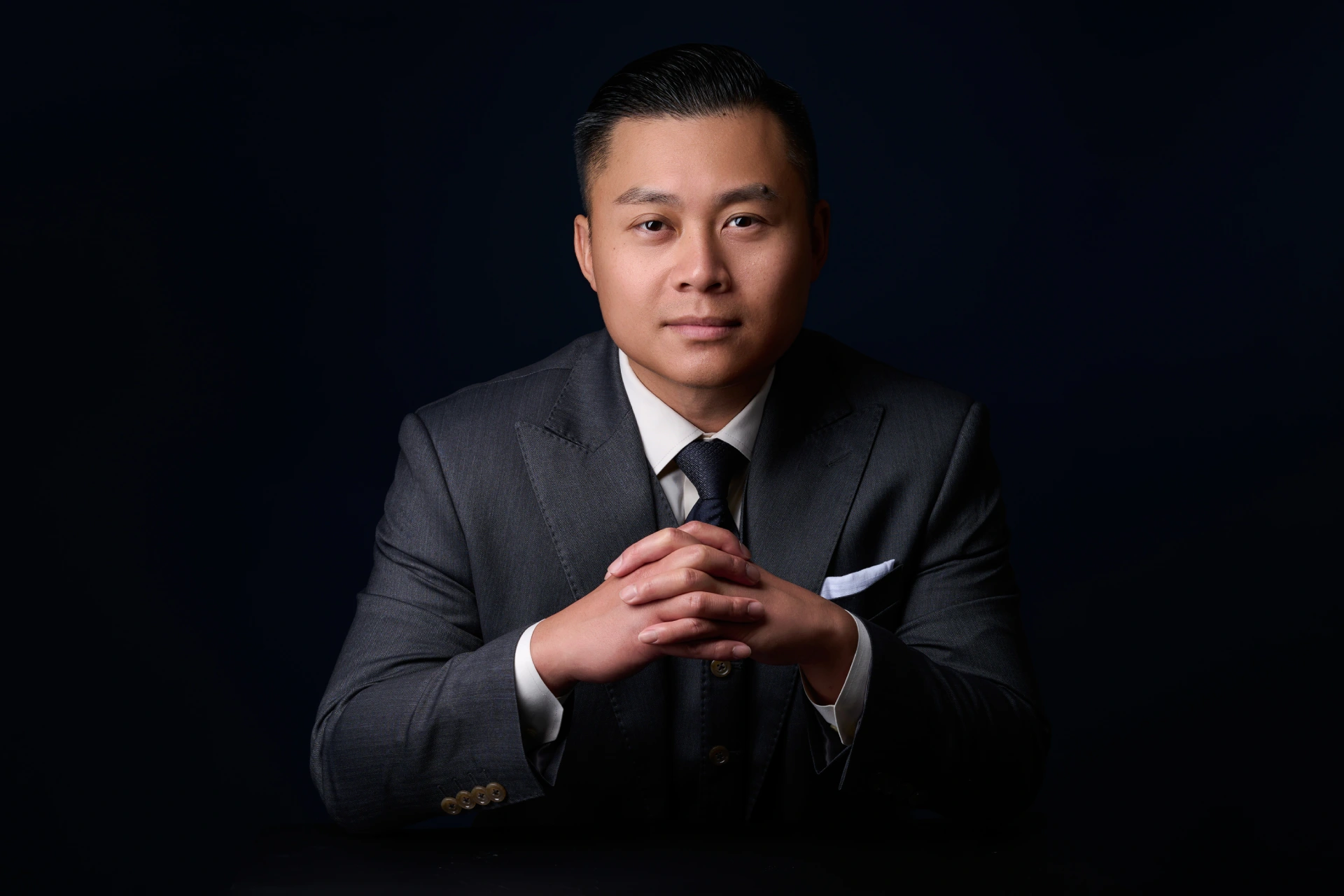Choose Your Champion: Questions to Ask a Criminal Defense Attorney
Finding yourself in the criminal justice system is a stressful, often overwhelming experience. The decisions you make in the first few hours and days can have a lasting impact on your future. One of the most critical choices you will face is selecting the right criminal defense attorney. This person will be your guide, your advocate, and your champion. They will stand between you and the full force of the state.
But how do you choose? With so much on the line, simply picking the first name you find online is not an option. You need to do your due diligence, and that starts with asking the right questions during your initial consultation. This blog will equip you with a comprehensive list of questions designed to help you vet potential attorneys and find a legal partner you can trust. By the end, you’ll have a clear roadmap to making an informed decision that could change the course of your life.
Experience: Is This Attorney the Right Fit for My Case?
The first set of questions should focus on the attorney’s experience. You wouldn’t hire a dentist to perform heart surgery, so you shouldn’t hire a general practitioner for a complex criminal case. The attorney you choose must have a track record of success with cases similar to yours.
- How long have you been practicing criminal defense law? While a new lawyer might be highly skilled, years of experience often bring invaluable insights into courtroom dynamics and negotiation strategies.
- Do you specialize exclusively in criminal defense? A dedicated criminal defense lawyer lives and breathes this area of law. Their focus ensures they are up-to-date on the latest legal precedents and trial techniques.
- Have you handled cases like mine before? This is perhaps the most important question. A DUI defense is vastly different from a white-collar crime defense. Your attorney should be able to demonstrate direct, relevant experience with the specific charges you face.
- How many trials have you conducted, and what were the outcomes? Many criminal cases are resolved through plea bargains, but you need a lawyer who is prepared and able to go to trial if necessary. Their trial experience, and their success in the courtroom, speaks volumes about their confidence and ability.
- What is your experience with the local courts, judges, and prosecutors? The legal system is often a network of personal relationships and local practices. An attorney who knows the players in your courthouse has a significant advantage. They can anticipate a prosecutor’s likely moves and understand a judge’s tendencies.

Strategy and Communication: How Will We Work Together?
Once you have established the attorney’s qualifications, the next step is to understand their approach. Your relationship with your attorney is a partnership. You need to be confident that their strategy aligns with your goals and that you can communicate effectively throughout the process.
- What is your initial assessment of my case, and what are my potential options? A good attorney won’t make promises, but they should be able to provide a realistic, preliminary assessment based on the information you’ve shared. They should explain the best-case, worst-case, and most-likely scenarios.
- What is your defense strategy? The lawyer should outline a clear, coherent plan for how they will handle your case. This includes everything from investigating the facts to negotiating with the prosecutor.
- Who will be my primary point of contact, and how will you communicate with me? You need to know if you’ll be working directly with the lead attorney or if your case will be handed off to a junior associate or paralegal. Clarify how often you can expect updates and the best way to reach them with questions.
- How do you handle plea negotiations? An attorney who is a former prosecutor, like those at The Win Law Firm, often brings a unique perspective to the negotiation table. They understand how the prosecution thinks and can leverage that knowledge to secure a more favorable outcome.
- What is my role in this process? You are not a passive observer. Your attorney should explain what they need from you, whether it’s gathering documents or preparing to testify. A good lawyer empowers their clients by keeping them involved and informed.
Fees and Logistics: Understanding the Business Side
Legal fees are a major concern for most people. Transparency is key. You need a clear understanding of the financial commitment involved so there are no surprises down the road.
- What is your fee structure? Do they charge a flat fee for the case, or an hourly rate? Each model has pros and cons, and you need to understand which one applies to you.
- What does the fee include, and what might be an additional cost? Be sure to ask about potential extra expenses. These can include court filing fees, private investigator fees, or expert witness costs. A reputable attorney will be upfront about these possibilities.
- How do you document our agreement? All fee arrangements should be clearly laid out in a written contract. This protects both you and the law firm and ensures everyone is on the same page.
- What happens if the case goes to trial? Often, the fee structure changes if a case proceeds to trial. Make sure you understand how this will affect the overall cost.

Reputation and Ethics: Do I Trust This Person?
Ultimately, your decision comes down to trust. You must feel confident that your attorney is not only capable but also ethical and committed to your best interests.
- Can you provide professional references or client testimonials? While online reviews are a good starting point, asking for direct references can provide deeper insight into an attorney’s reputation and client relationships.
- How do you maintain your professional knowledge and skills? The legal landscape is constantly evolving. A committed attorney will stay current through continuing legal education and involvement in professional organizations.
- What is your firm’s philosophy or mission? This question gets to the heart of the firm’s values. Do they see you as a number or a person in need? Firms like The Win Law Firm, with its focus on fighting for clients “to WIN,” demonstrate a clear commitment to their clients’ well-being.
- Have you ever been disciplined by the state bar association? This is a direct but necessary question. An attorney’s ethical record is a critical indicator of their professionalism and trustworthiness. You can often check this with the state bar directly.
- Do you feel confident you can help me? Your attorney’s confidence in their ability to help you is crucial. You should walk away from the consultation feeling a sense of hope and reassurance.
Conclusion
Choosing a criminal defense attorney is not a decision to be taken lightly. It’s a choice that can profoundly affect your future, your freedom, and your peace of mind. By asking these key questions during your initial consultation, you can move past the superficial details and get to the heart of what matters: finding a qualified, dedicated, and trustworthy legal advocate.
At The Win Law Firm, we believe in this process. We encourage you to ask us these questions and any others that are on your mind. We are confident that our experience, our commitment to our clients, and our unique perspective as former prosecutors will give you the confidence you need during this challenging time.
If you are facing criminal charges, contact The Win Law Firm today for a confidential consultation. Let us put our experience to work for you.
Disclaimer: This blog post is for informational purposes only and does not constitute legal advice. Always consult a licensed attorney for guidance specific to your case.
FAQ Section for Criminal Defense Attorney
Q: What is the most important question to ask a criminal defense attorney?
A: While all questions are important, asking “Have you handled cases like mine before?” is arguably the most critical. You need to ensure the attorney has direct experience with your specific type of criminal charge, whether it’s a DUI, a white-collar crime, or a more serious felony. An attorney with a proven track record in your specific area of need will have a deeper understanding of the relevant laws, potential defenses, and the specific nuances of your case. This expertise can be the difference between a favorable and an unfavorable outcome.
Q: Should I hire the cheapest criminal defense attorney I can find?
A: It is generally not advisable to hire an attorney based solely on their low fees. While cost is a valid concern, the legal expertise and quality of representation you receive can have far-reaching consequences on your life, including your freedom and future opportunities. An attorney with a low fee might have less experience, a high caseload, or a lack of resources, all of which can compromise your defense. It is better to view legal fees as an investment in your future and choose an attorney based on their qualifications, experience, and the confidence they inspire. Many reputable firms, including The Win Law Firm, offer transparent fee structures and payment plans to make quality representation accessible.
Q: What is a free consultation, and what should I expect?
A: A free consultation is an initial meeting with a potential attorney, offered at no cost to you. It serves as a chance for both parties to evaluate the situation. During this meeting, you will discuss the details of your case, and the attorney will provide a preliminary assessment. You should use this opportunity to ask the key questions discussed in this blog post, such as those about their experience, strategy, and fees. It’s also an important time to gauge your personal comfort level with the attorney. You should leave the consultation with a clear understanding of your legal situation, the attorney’s potential approach, and whether they are the right fit for you.
Q: How can I verify an attorney’s reputation?
A: You can verify an attorney’s reputation through several avenues. Start by checking their online reviews and testimonials on platforms like Google, Avvo, and Martindale-Hubbell. Look for a consistent pattern of positive feedback, particularly regarding communication, professionalism, and case results. You should also check with your state’s bar association to see if the attorney has ever been disciplined or faced ethical complaints. Finally, don’t hesitate to ask the attorney for professional references from other lawyers or past clients. A reputable attorney will be transparent and proud to share their record.
Q: How long does the process of choosing an attorney usually take?
A: The time it takes to choose an attorney can vary depending on the urgency of your situation and the complexity of your case. It is critical to act quickly after being charged with a crime. Many attorneys, including those at The Win Law Firm, offer same-day or next-day consultations. The process involves scheduling consultations with a few potential attorneys, asking your questions, and then making a decision. You should aim to complete this process as soon as possible to ensure your attorney has the maximum amount of time to prepare your defense and protect your rights from the very beginning of the legal process.
